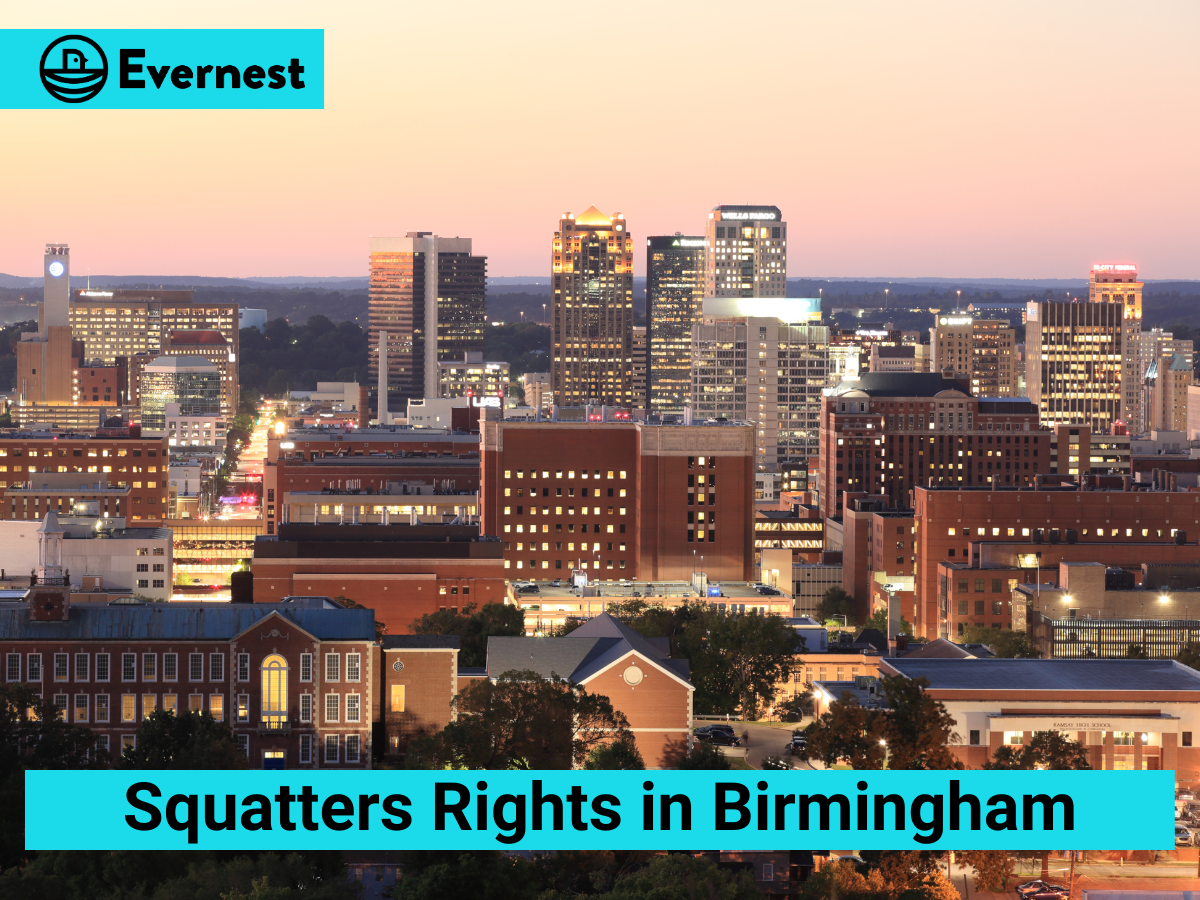Squatting, the act of occupying abandoned or empty properties without the owner's permission, is a complex issue that raises many legal and ethical questions.
In Birmingham, Alabama, the issue of squatters’ rights has become a subject of intense debate. Understanding the legal framework surrounding squatting is essential to navigate the intricacies of this issue.
This article aims to provide a comprehensive overview of squatters' rights in Birmingham, Alabama. So, let’s jump in!
Disclaimer: The information provided in this blog does not, and is not intended to, constitute legal advice; instead, all information, content, and materials available in this blog are for general informational purposes only.
The Legal Definition of Squatting
Squatting refers to occupying someone else's property (residential or commercial) without their permission. It’s often done with the intention of establishing a temporary or permanent residence.
The legal definition and implications of squatting can vary between jurisdictions. In Birmingham, Alabama, squatting is considered a form of trespassing, which means property owners have certain rights and protections under the law.
The History of Squatting Laws in Alabama
Historically, Alabama has had a complex relationship with land ownership and property rights, influenced by a long history of rural communities and agrarian traditions. The development and enforcement of squatting laws have evolved to reflect the changing needs of the state.
In the early days of Alabama's settlement, land was often obtained through squatting. Settlers would occupy and improve the land, hoping to eventually gain legal ownership through adverse possession laws. These laws allowed individuals who occupied and cultivated land for a certain period to claim ownership, even if they did not have legal title. This practice was common in the 19th century, as the state was still developing its legal framework.
As Alabama became more urbanized and property values increased, squatting became a problem. Property owners voiced concerns about the loss of control over their land and the potential for damage or devaluation. In response, the state government enacted laws to protect property owners and discourage squatting.
Over time, the legal definition of squatting became more specific. It was no longer limited to simply occupying someone else's property, but also included actions such as altering the property, using it for commercial purposes, or refusing to vacate when requested by the owner.
The Difference Between Trespassing and Squatting
While squatting can be considered a form of trespassing, there are some key differences between the two. Trespassing typically involves entering or remaining on someone else's property without permission, whereas squatting specifically refers to the act of occupying a property without authorization for an extended period.
In Alabama, trespassing is generally considered a misdemeanor offense. It is a violation of a property owner's rights and can result in criminal charges. On the other hand, squatting is often treated as a civil matter, with property owners having to go through a legal process to regain control of their property. This can involve filing eviction proceedings and obtaining a court order to remove the squatters.
The laws surrounding squatting can vary depending on factors like the length of time the property has been occupied, the intentions of the squatters, and any previous agreements between the parties, which can all impact the legal outcome of a squatting case.
The Process of Adverse Possession in Alabama
Adverse possession is a legal concept that grants ownership of a property to someone who occupies it openly, continuously, and exclusively for a certain period.
Requirements for Adverse Possession
For adverse possession to be successful in Alabama, several requirements must be met. These include open and notorious occupation, continuous possession for at least 20 years (or ten years with color of title), exclusive control, and the payment of property taxes.
The Legal Procedure for Claiming Adverse Possession
Claiming adverse possession involves filing a lawsuit in court and providing evidence to support the claim. The legal procedure can be complex, requiring expert legal advice and thorough documentation. As a rental property owner, it is crucial that you understand the steps involved in this process.
The Rights of Property Owners
Property owners hold certain rights and responsibilities when it comes to dealing with squatting.
How to Prevent Squatting
Property owners can deter potential squatters by installing security measures, regularly inspecting vacant properties, and engaging in communication and collaboration with neighbors and law enforcement agencies.
If you live out-of-state, or if you’re just not up to the task, a local property management company can do this on your behalf.
Legal Recourse for Property Owners
Property owners can also pursue eviction proceedings through the court system, seek compensation for damages caused by squatters, and take legal action against those infringing on their property rights.
Keep in mind that it is always advisable to consult with a legal professional to determine the best path forward. But a local property management company may also be able to assist with a lawful eviction.
Squatters’ Rights in Birmingham
Squatters also have rights and legal protections that must be considered.
Legal Protections for Squatters
Squatters may have legal protections, particularly if they meet certain criteria, such as adverse possession requirements. Protecting vulnerable populations and providing avenues for affordable housing are considerations that influence how the legal system deals with squatting cases.
The Process of Eviction for Squatters
Evicting squatters involves a legal process that must be followed to ensure fairness and adherence to the law. The process may vary depending on the circumstances, and it is essential to understand the specific requirements and procedures involved.
Final Thoughts: Squatters’ Rights in Birmingham
In conclusion, understanding squatters' rights in Birmingham, Alabama, requires a comprehensive grasp of the legal framework, the rights of property owners, and the rights and protections afforded to squatters. Balancing the needs and interests of all stakeholders is essential to address squatting effectively and promote a fair and just society while maintaining the rights of property owners.
Looking for a Property Management Company in Birmingham?
Need help with squatters, marketing, maintenance, and more? Evernest Birmingham is here to help! Contact our local team to get started today.


